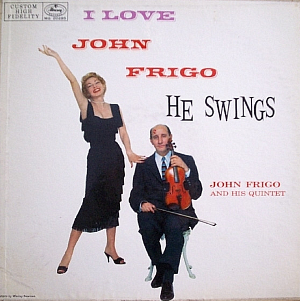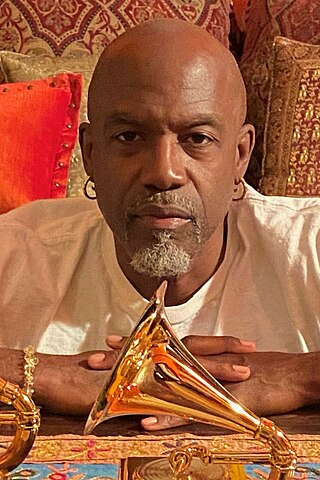Related Research Articles

Billie Holiday was an American jazz and swing music singer. Nicknamed "Lady Day" by her friend and music partner, Lester Young, Holiday had an innovative influence on jazz music and pop singing. Her vocal style, strongly inspired by jazz instrumentalists, pioneered a new way of manipulating phrasing and tempo. She was known for her vocal delivery and improvisational skills.

Earth, Wind & Fire is an American musical group. Their style and sound span over various music genres such as jazz, R&B, soul, funk, disco, pop, Latin, and Afro-pop. They are among the best-selling music artists of all time, with sales of over 90 million records worldwide.

Spoon is an American rock band from Austin, Texas, consisting of members Britt Daniel, Jim Eno (drums), Alex Fischel, Gerardo Larios and Ben Trokan. The band was formed in Austin in October 1993 by Daniel and Eno. Critics have described the band's musical style as rock, pop, art rock, and experimental rock.

Mitchell Herbert Ellis was an American jazz guitarist. During the 1950s, he was in a trio with pianist Oscar Peterson.

Moonlighting is an American comedy drama television series that aired on ABC from March 3, 1985, to May 14, 1989. The network aired a total of 67 episodes. Starring Cybill Shepherd and Bruce Willis as private detectives, and Allyce Beasley as their quirky receptionist, the show was a mixture of drama, comedy, mystery, and romance, and was considered to be one of the first successful and influential examples of comedy drama, or "dramedy", emerging as a distinct television genre. The show's theme song was co-written and performed by jazz singer Al Jarreau and became a hit. The show is also credited with making Willis a star and relaunching Shepherd's career after a string of lackluster projects. In 1997, the episode "The Dream Sequence Always Rings Twice" was ranked number 34 on TV Guide's 100 Greatest Episodes of All Time. In 2007, the series was listed as one of Time magazine's "100 Best TV Shows of All-Time". The relationship between the characters David and Maddie was included in TV Guide's list of the best TV couples of all time.

Maurice White was an American singer, band leader, musician, songwriter, and record producer. He was best known as the founder, leader, main songwriter, and producer of the band Earth, Wind & Fire, and served as the band's co-lead singer with Philip Bailey.

Marsha Ambrosius-Billups is an English singer and songwriter. She began her musical career as a member of the R&B duo Floetry. Ambrosius released her debut solo album Late Nights & Early Mornings in 2011.

"Killing Me Softly with His Song" is a song composed by Charles Fox with lyrics by Norman Gimbel. The lyrics were written in collaboration with Lori Lieberman after she was inspired by a Don McLean performance in late 1971. Denied writing credit by Fox and Gimbel, Lieberman released her version of the song in 1972, but it did not chart. The song has been covered by many other artists.

Philip James Bailey is an American R&B, soul, gospel and funk singer, songwriter and percussionist, best known as an early member and one of the two lead singers of the band Earth, Wind & Fire. Noted for his four-octave vocal range and distinctive falsetto register, Bailey was inducted into the Rock and Roll Hall of Fame and the Vocal Group Hall of Fame as a member of Earth, Wind & Fire. Bailey was also inducted into the Songwriters Hall of Fame for his work with the band.

Marti Pellow is a Scottish singer. He was the lead singer of the Scottish pop group Wet Wet Wet for 28 years: from their formation in 1982 until their split in 1997, and again from their reformation in 2004 to his departure in 2017. He has also recorded albums as a solo artist, and performed as an actor in musical theatre productions in both the West End and on Broadway.

Johnny Frigo was an American jazz violinist, bassist and songwriter. He appeared in the 1940s as a violinist before working as a bassist. He returned to the violin in the 1980s and enjoyed a comeback, recording several albums as a leader.

"Moonlight Serenade" is an American swing ballad composed by Glenn Miller with subsequent lyrics by Mitchell Parish. It was an immediate phenomenon when released in May 1939 as an instrumental arrangement, though it had been adopted and performed as Miller's signature tune as early as 1938, even before it had been given the name "Moonlight Serenade". In 1991, Miller's recording of "Moonlight Serenade" was inducted into the Grammy Hall of Fame.

I Love John Frigo...He Swings was the debut album of jazz violinist Johnny Frigo for Mercury Records. Despite the high caliber of Frigo's collaborators, the album was more or less ignored on its release. It would be decades later that he would get the chance to record as a leader again, in the interim performing mainly as a bassist rather than a violinist.

Jhootha Hi Sahi is the soundtrack to the 2010 Bollywood romantic comedy film of the same name, directed by Abbas Tyrewala starring John Abraham and Pakhi Tyrewala. The soundtrack, consisting of seven original tracks and two remix versions was composed by A. R. Rahman with lyrics penned by Abbas Tyrewala. The audio was officially released on 17 September by Sa Re Ga Ma at the Sa Re Ga Ma Pa competition. The album was very well received by the critics and was the chart topper for some weeks. The album has been praised by several reviewers as a newer genre in soundtracks.

Swing jazz emerged as a dominant form in American music, in which some virtuoso soloists became as famous as the band leaders. Key figures in developing the "big" jazz band included bandleaders and arrangers Count Basie, Cab Calloway, Jimmy and Tommy Dorsey, Duke Ellington, Benny Goodman, Fletcher Henderson, Earl Hines, Glenn Miller, and Artie Shaw. Duke Ellington and his band members composed numerous swing era hits that have become standards: "It Don't Mean a Thing " (1932), "Sophisticated Lady" (1933) and "Caravan" (1936), among others. Other influential bandleaders of this period were Benny Goodman and Count Basie.

Neal H Pogue is an American producer, audio engineer and mixer originally from Roselle, New Jersey, and based in Los Angeles. Pogue is a multi-time Grammy Award winner, having first won for his engineering and mixing work on Outkast's Speakerboxxx/The Love Below (2004) – which won the Album of the Year category, and his audio mixing work on Tyler, The Creator's Igor & Call Me If You Get Lost – which both records won the Best Rap Album category respectively in 2020 & 2022. Pogue has also produced for artists such as M.I.A, Nelly Furtado, Earth, Wind & Fire and has mixed for artists such as TLC, Pink, Nicki Minaj, Janelle Monáe, Tyler, the Creator, and Steve Lacy. Having engineered and mixed TLC's Grammy nominated 11-time platinum single "Waterfalls", Pogue also arranged the horns on "Waterfalls" under the pseudonym "Shock". Pogue has gone on to work with many prominent names in music.
Helena Lisandrello, known professionally as Helena Springs, is an American singer. The singer was first a backup vocalist for Bob Dylan, starting in 1978 aged 17, and co-wrote 19 songs with him, more than any of his other collaborators. She was a vocalist for Dylan's 1978 World Tour, and the following year on his Gospel Tour. Springs appeared on his albums Street-Legal (1978), Bob Dylan at Budokan (1978), and Slow Train Coming (1979), as well as the compilation The Bootleg Series Vol. 13: Trouble No More 1979–1981 (2017). She stopped working with Dylan in either late 1979 or early 1980.
References
- ↑ "The Soft Winds". Allmusic. Retrieved September 13, 2021.
- ↑ "I Told Ya I Love Ya, Now Get Out". Song Meanings. Retrieved September 13, 2021.
- ↑ "I Told Ya I Love Ya, Now Get Out". Secondhandsongs.com. Retrieved September 13, 2021.
- ↑ Ryan, Scott (2005). Moonlighting: An Oral History. Fayetteville Mafia Press. ISBN 9781949024272.